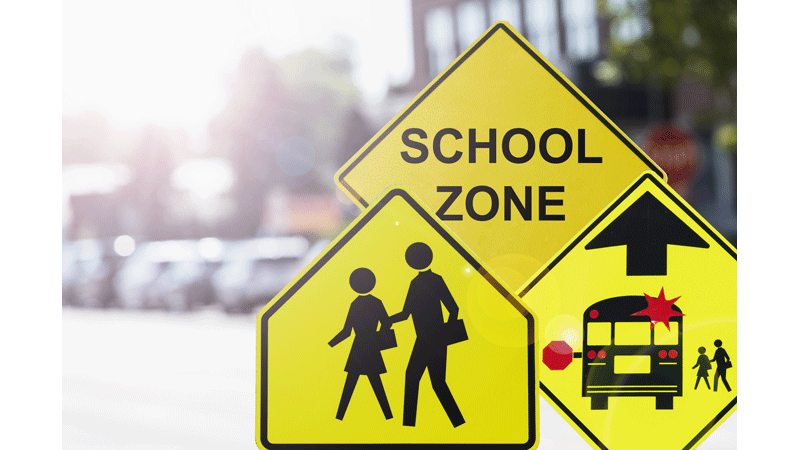Speed enforcement cameras proposed for Isle of Wight County’s school zones
Published 5:24 pm Wednesday, May 17, 2023

- (Photo courtesy of Metro Creative Graphics Inc.)
|
Getting your Trinity Audio player ready...
|
Automated speed enforcement cameras may come to Isle of Wight County’s school zones within the next six months.
County supervisors are considering a proposal by Blue Line Solutions to affix cameras to the county’s flashing school zone speed limit signs. A representative of the company contends the project can be done at no cost – except for the money the speeders would pay in fines.
The cameras use LIDAR, a laser-guided version of radar, to track the speed of vehicles and then photograph speeders’ license plates.
Virginia’s General Assembly, in 2020, authorized $100 fines for motorists caught on camera speeding through a school zone. According to Randy Campbell, a former state trooper who’s now Blue Line’s regional senior adviser, $75 out of every $100 would come back to Isle of Wight as an additional source of governmental revenue, while Blue Line would collect the remaining $25.
The company, which is owned and operated entirely by former law enforcement personnel, begins the process by conducting a speed study at each school. In Isle of Wight’s case, that step has already been completed.
According to Campbell, the study found speeding to be so pervasive in Carrollton Elementary’s school zone that the $100 fines would generate roughly $1.5 million in five days. On Brewers Neck Boulevard, a four-lane, 55 mph highway, the speed limit drops to 35 mph for the stretch of road that passes within a quarter-mile of the school.
To give motorists a chance to change their behavior before they start getting fined, Blue Line typically launches a 30-day public education campaign in each participating locality ahead of activating the automated system. After that, there’s a 30-day warning period. Then the cameras go live and the fines begin.
Even if there’s 100% compliance with the law, and speeding disappears, Blue Line won’t come back to the county seeking reimbursement for installing the cameras, Campbell assured.
The only commitment required of the county, he said, is designating a sheriff’s deputy to be the company’s point of contact. This deputy would be tasked with approving the summonses generated by the camera enforcement system.
The only action needed to approve moving forward with the camera system, according to County Attorney Bobby Jones, is a formal vote of approval by the supervisors.
The county-level discussion comes roughly a month after Smithfield’s Town Council discussed installing an automated camera on the school zone sign at Westside Elementary, which is the only school located within the town’s limits. In April, Maryland-based Altumint quoted the town a monthly cost of $3,500.
West Main Street, where Westside is located, has a posted speed limit of 45 mph, which drops to 25 mph on school days from 8:30 a.m. to 9:05 a.m., and from 3:30 p.m. to 4:05 p.m. A speed study the Smithfield Police Department conducted Feb. 6-10 saw 638 vehicles, or roughly 13% of the 4,290 observed over five days, exceed the school zone speed limit by 10 mph or more.
Another two of the county’s nine schools – Georgie D. Tyler Middle School and Windsor High School – are located within the town of Windsor, where the Windsor Police Department has primary jurisdiction.
Blue Line, like Altumint, would program the cameras to only operate during designated school hours when the school zone speed limit signs are flashing.
Campbell estimated that if a contract is signed by late May, the system could go live by late October or early November.




